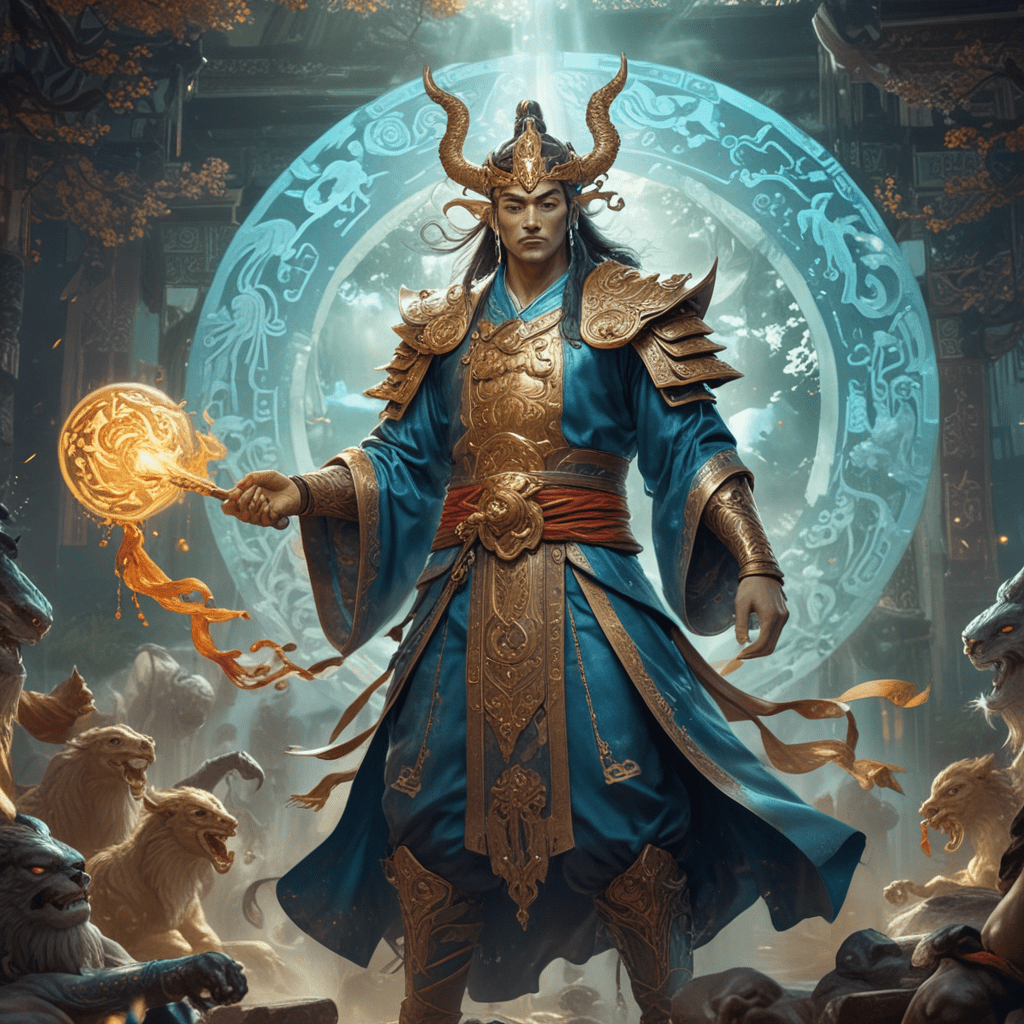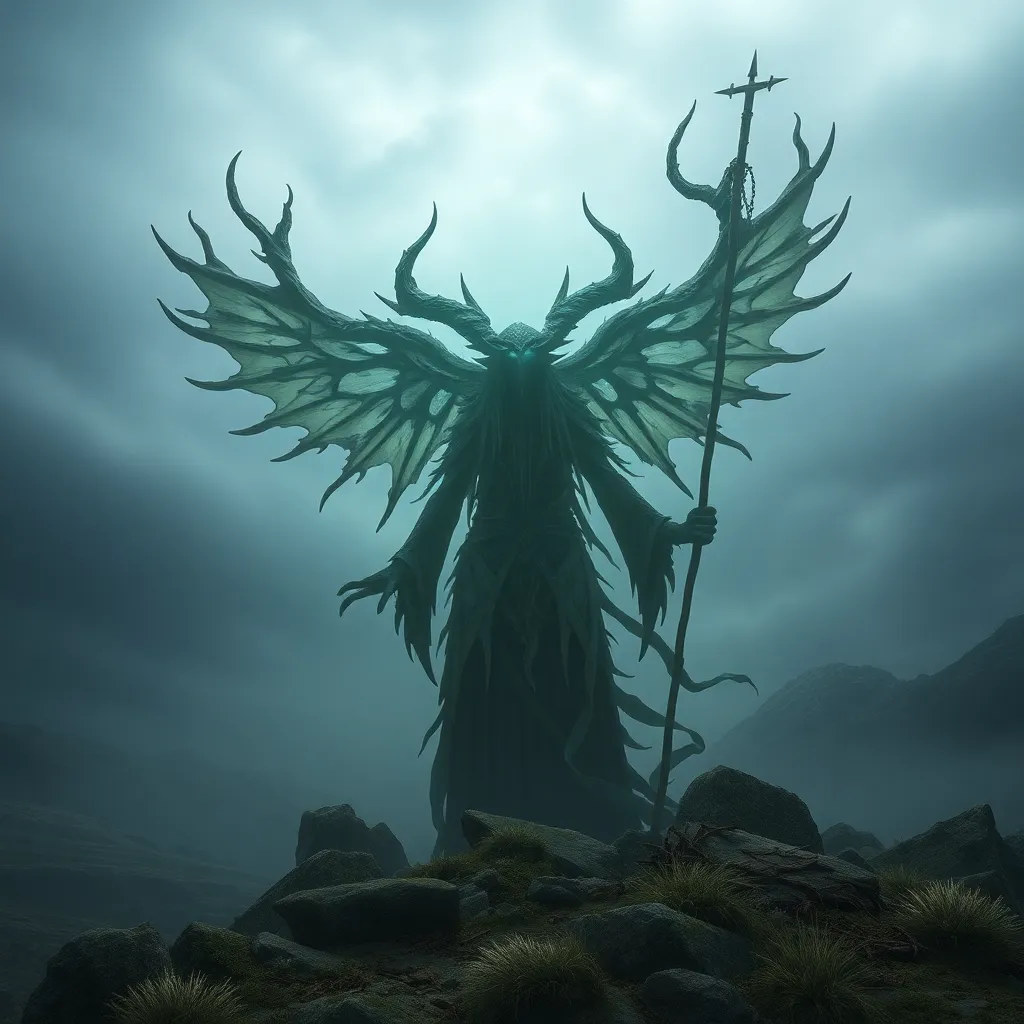Tales of Water Spirits: The Supernatural in Global Flood Myths
Introduction: The Allure of Flood Myths
Flood myths are compelling narratives found in various cultures around the world, often recounting a catastrophic deluge that wipes out humanity or a significant portion of it. These stories are not merely tales of destruction; they serve as profound reflections on human existence, morality, and the forces of nature. Central to many of these myths are water spirits—supernatural beings that embody the essence of water and its duality as both life-giving and destructive.
This article explores the significance of flood myths in global folklore, highlighting the role of water spirits across different cultures. By examining various myths, we can uncover the shared themes and unique interpretations that illustrate humanity’s complex relationship with water.
The Role of Water in Mythology
Water is a powerful symbol in mythology, representing purity, fertility, and life, while also embodying chaos, destruction, and death. Across cultures, water is revered for its ability to nourish the earth and sustain life, yet it is also feared for its capacity to unleash devastation in the form of floods.
Water spirits, often seen as guardians or manifestations of water, play a crucial role in these narratives. They are believed to possess great power and influence over water’s behavior, making them central figures in flood myths. In many cultures, these spirits are invoked for protection, guidance, or appeasement in the wake of natural disasters.
Mesopotamian Myths: The Epic of Gilgamesh
The Epic of Gilgamesh, one of the oldest known works of literature, features a notable flood narrative. In this myth, the hero Gilgamesh seeks immortality and learns of a great flood that destroyed humanity, a tale recounted by Utnapishtim, a character who survived the deluge.
In the story, the water spirit Ea (Enki) plays a pivotal role by warning Utnapishtim of the impending flood, instructing him to build an ark to save himself and his family. This narrative illustrates themes of divine retribution, as the flood serves as punishment for humanity’s sins, while also emphasizing the resilience of human survival.
Hindu Traditions: Matsya and the Great Deluge
In Hindu mythology, the tale of Matsya, the fish avatar of the god Vishnu, recounts a great deluge that threatens to engulf the world. Vishnu, in his Matsya form, saves the sage Manu and the seeds of all living creatures by guiding him to safety on a massive boat.
The interaction between human characters and water spirits in this myth underscores the importance of dharma (righteousness) and the cyclical nature of life. The flood serves not only as a destructive force but also as a means of renewal, allowing for the rebirth of life after chaos.
Native American Perspectives: The Great Flood and Water Spirits
Native American cultures have diverse flood myths, with variations among tribes such as the Hopi and Ojibwe. In these narratives, water spirits often embody the essence of the natural world and are integral to tribal cosmology.
- The Hopi myth speaks of a great flood sent by a deity to cleanse the earth, with water spirits aiding in the transformation and renewal of the world.
- The Ojibwe story includes water spirits who help guide survivors to safety, emphasizing the connection between humans and the natural environment.
These myths reflect the deep connection to the land and highlight themes of environmental stewardship, reminding communities of their responsibility to care for the earth.
Asian Flood Myths: The Chinese Legend of Gun-Yu
In Chinese mythology, the legend of Gun and his son Yu the Great narrates the struggle against devastating floods. Gun attempts to control the waters but ultimately fails, leading to his demise. His son Yu, however, succeeds in taming the floods through perseverance and innovative techniques.
Water spirits in this context symbolize the natural forces that must be respected and understood. The story reflects cultural values of hard work, resourcefulness, and harmony with nature, emphasizing the importance of coexistence with the environment.
European Folklore: The Nibelungenlied and Water Spirits
The Nibelungenlied, a German epic poem, contains elements of flood mythology intertwined with themes of fate, love, and loss. The narrative includes depictions of water as a supernatural force that shapes the destinies of its characters.
Water spirits in this tradition often embody the unpredictable nature of fate, serving as both protectors and destroyers. The interplay between human emotions and the capriciousness of water highlights the complexities of existence and the enduring impact of love and loss.
African Myths: The Role of Water Spirits in Creation Stories
In many African cultures, flood myths are intertwined with creation stories, where water spirits are seen as vital to the process of life and renewal. For example, the Yoruba and Dogon peoples have narratives that emphasize the role of water in the genesis of humanity.
- The Yoruba myth speaks of Olokun, the spirit of the sea, who represents both chaos and fertility, essential for creation.
- The Dogon believe in water spirits that govern the rains and the rivers, maintaining the balance of life.
These myths often explore themes of balance, chaos, and renewal, illustrating how water spirits are integral to understanding the world’s cyclical nature.
Modern Interpretations of Ancient Flood Myths
The influence of flood myths extends into contemporary literature and media, where they continue to resonate with audiences. These narratives often serve as metaphors for environmental challenges, reflecting humanity’s ongoing struggle with nature.
Modern interpretations highlight the environmental implications of ancient narratives, emphasizing the need for respect and understanding of natural forces. Water spirits symbolize humanity’s relationship with nature, reminding us of the delicate balance between creation and destruction.
Conclusion: The Enduring Legacy of Water Spirits in Flood Myths
The enduring legacy of water spirits in global flood myths reflects humanity’s complex relationship with water—an element that sustains life yet can also bring devastation. From the tales of the Epic of Gilgamesh to the Matsya of Hindu tradition, these narratives offer insights into cultural values, environmental stewardship, and the cyclical nature of existence.
As we continue to grapple with the challenges posed by climate change and natural disasters, the lessons embedded in these myths remind us of the importance of harmony with nature and the reverence for the supernatural forces that govern our world.



